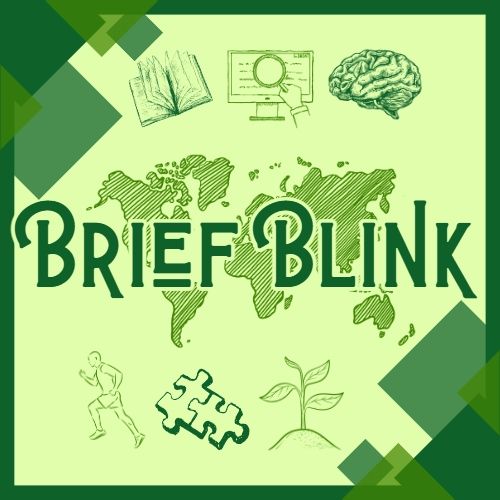Unseen Impact: How Sleep Deprivation Affects Your Eyesight
Sleep is vital not just for your body and mind, but for your eyes, too. Discover how sleep deprivation affects your eyes. Prevent yourself from the burden of dry eyes or glaucoma. Learn how to protect your vision.
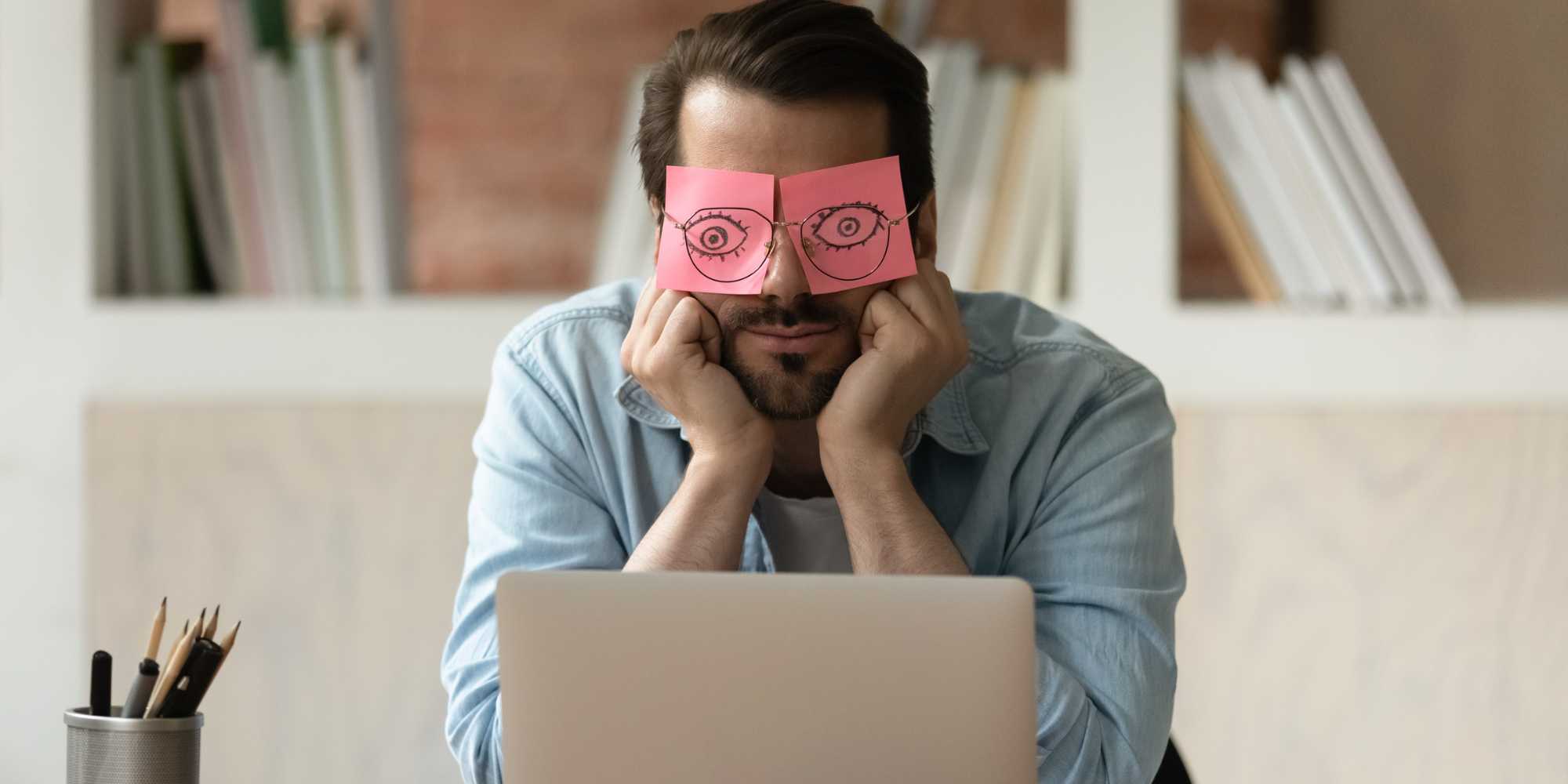
Let's dive into the fascinating world of sleep and the crucial role it plays in maintaining our eye health. Have you ever wondered why after a night of little to no sleep, your eyes feel heavy, dry, or maybe twitchy? Or perhaps you've noticed those pesky dark circles that appear magically after burning the midnight oil?
Well, it's not magic, but science. There's much more lying in wake when you don't fall asleep. We endanger our eyes when we neglect quality sleep. Fear not, there are also ways to ensure that you're getting enough of it. Let's see how and unpack the effects of sleep deprivation on your eyes.
The Science of Sleep
Before we discuss the effects of sleep deprivation, let's look at what happens when we sleep. Sleep is a crucial part of our daily routine. The function of sleep is to let our bodies repair and renew. During sleep, your body works to support healthy brain function and maintain your physical health. This includes your eyesight, which benefits from restful sleep.
What is sleep deprivation?
Sleep deprivation refers to not getting enough sleep. That's something many of us are unfortunately too familiar with. It's more than just feeling tired. It's a significant lack of the restorative sleep that our bodies need to function properly. Long-term sleep deprivation can have severe impacts on our health, including our precious eyesight.
Sleep deprivation is not insomnia
Insomnia is a sleep disorder. It’s the condition where people have difficulty falling asleep or staying asleep despite having the opportunity to do so. Sleep deprivation is a condition where someone doesn’t allow themselves to get enough sleep. Rather than a sleep disorder, it’s a consequence of not allocating ourselves enough time to get adequate sleep.
In both cases, the lack of sufficient quality sleep can have serious implications on our health and eye health.
The Importance of Sleep for Eye Health
Our eyes, just like the rest of our body, need time to rest and restore. They're on duty all day, taking in incredible amounts of visual information. They help us navigate the world. When we sleep, our eyes get a much-needed break. This allows them to refresh and prepare for the next day.
Sleep supports the production of proteins in our eyes that fight off infections and inflammation. It also helps maintain a healthy balance of tear production, which is crucial for preventing dry and irritated eyes.
How Lack of Sleep Affects Your Eyes
Inadequate sleep can lead to various eye-related issues, ranging from mild annoyances to severe conditions.
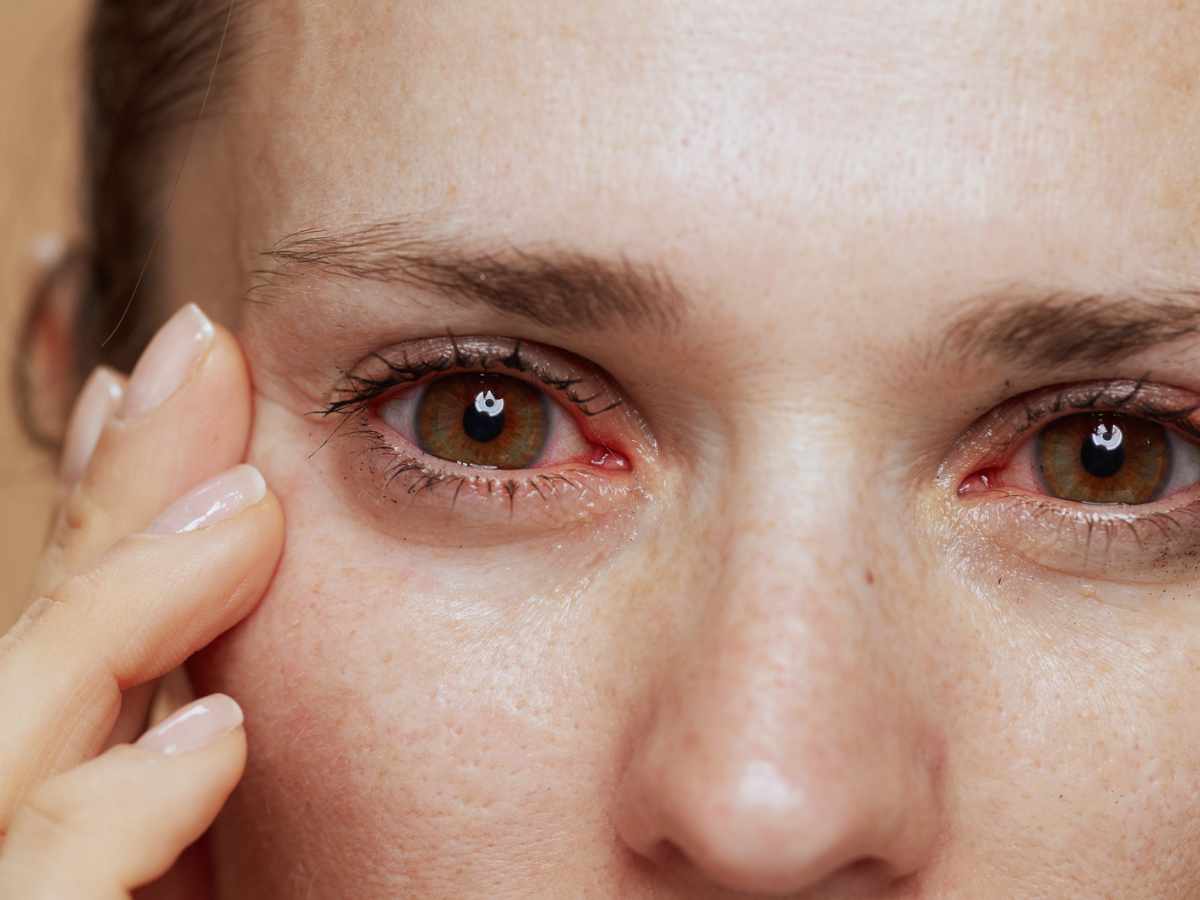
Eye spasms and twitches
With insufficient sleep, your body can respond in a variety of ways. Your eyes could develop annoying spasms or twitches. Eye spasms, also known as myokymia, are involuntary contractions of the muscles around your eyes.
These contractions often appear as a shaking or trembling feeling that can be quite bothersome. However, they're usually not painful. The good news is that these eye twitches usually go away with enough rest. If you find them persisting even after improving your sleep habits, try seeking an eye care professional.
Dry and itchy eyes
Our eyes need a layer of tears to stay lubricated and function properly. These tears are a mixture of water, oils, and mucus. They help keep our eyes comfortable and allow us to see clearly. We replenish this tear film when we sleep. Problems arise when we don't get enough sleep.
Our eyes become less lubricated, and we get dry and itchy eyes. Our eyes may feel gritty, a stinging sensation, or blurry vision. We might start tearing up a lot to compensate for the dryness. Chronic sleep deprivation can intensify these issues, leading to more severe dry eye conditions.
Dark circles and bloodshot eyes
Dark circles and bloodshot eyes are one of the most obvious signs of sleep deprivation. Dark circles, also known as periorbital hyperpigmentation, occur when blood vessels under the eyes dilate, creating a dark tint [1].
Bloodshot eyes result from the tiny blood vessels in the whites of your eyes expanding. This creates the red, bloodshot appearance. These conditions may make you appear tired or unwell, but they are usually harmless. These issues usually resolve themselves with proper rest and sleep.
Long-term Effects of Sleep Deprivation
Losing sleep comes with long-term consequences. Chronic sleep deprivation is a cause for concern. It can lead to more persistent and serious eye health issues. Poor sleep habits may be especially harmful for people with diabetes.
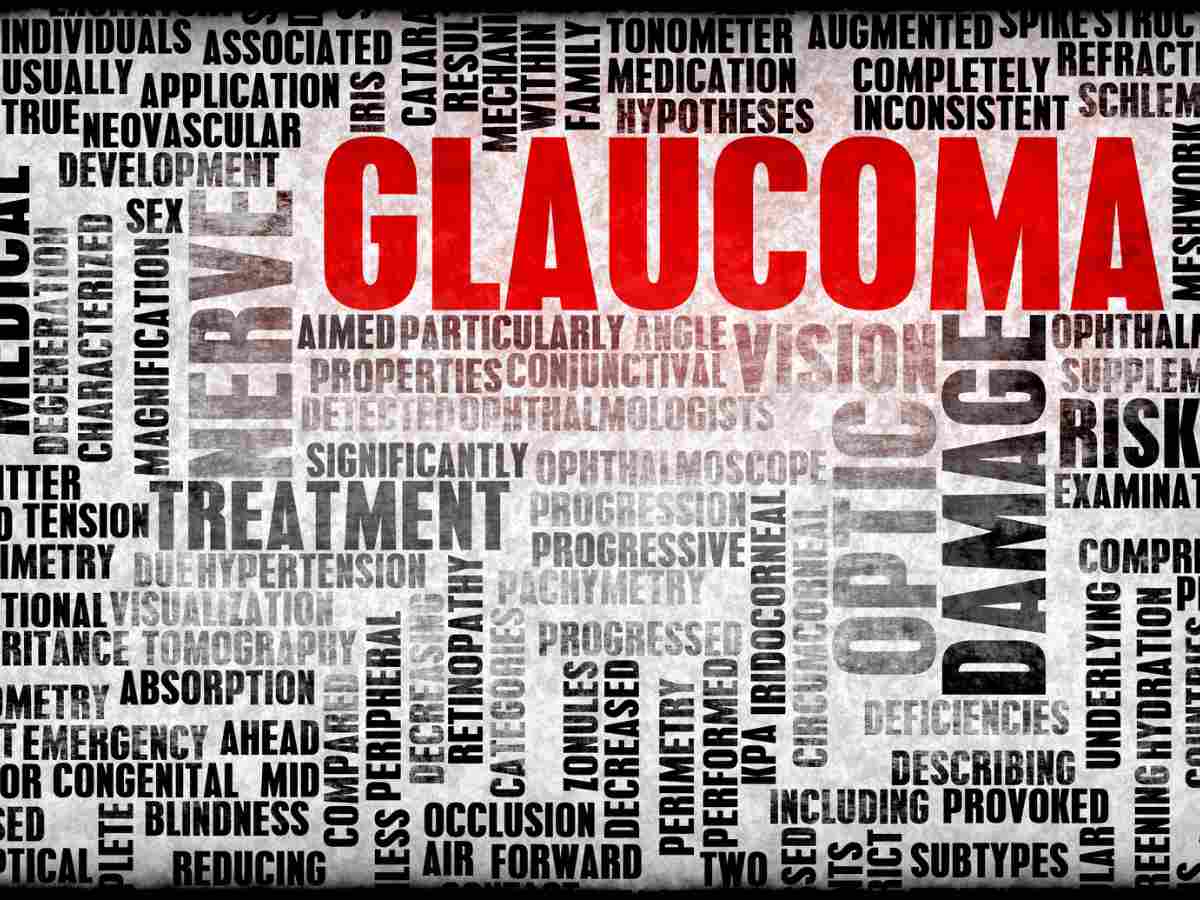
Glaucoma
Glaucoma is a serious eye condition that occurs when the optic nerve is damaged. A build-up of pressure often causes this damage in the eye. We could lose our vision if it's left untreated. Having sleep problems may increase the risk of developing glaucoma. One study found that people who slept less than three hours or over ten hours were three times more likely to have glaucoma [2].
Visual hallucinations
Lack of sleep can lead to visual hallucinations. It's a common side effect of several days' worth of sleep deprivation [3]. However, it's temporary and usually subsides once we get enough rest.
Decreased eye function
Eyesight depends on the eyes and the brain. Sleep deprivation jeopardises both. Long-term poor sleep habits can increase the risk of developing vision loss. This risk can be even higher for people who have obstructive sleep apnea - a condition marked by stopping and starting of breathing while sleeping [4].
Nearsightedness (myopia)
Sleep deprivation is especially damaging to young people's eyesight. A study showed that teenagers who got less than 5 hours of sleep per night were 41% more likely to have myopia, or develop nearsightedness [5]. This doesn't confirm that lack of sleep directly caused their myopia, but there's a correlation worth considering.
Diabetic eye problems
Poor sleep habits can also be especially harmful for people with diabetes. Getting more or less than 6 to 8 hours of sleep increases the risk of developing moderate diabetic retinopathy - a condition that could lead to vision loss [6].
How to Protect Your Eyesight
Protecting your eyesight is as critical as any other aspect of maintaining good health. You can put on sunscreen to shield your skin from UV rays. You can eat a balanced diet to keep yourself in good shape. Your eyes need the same TLC. Here's how to do just that.
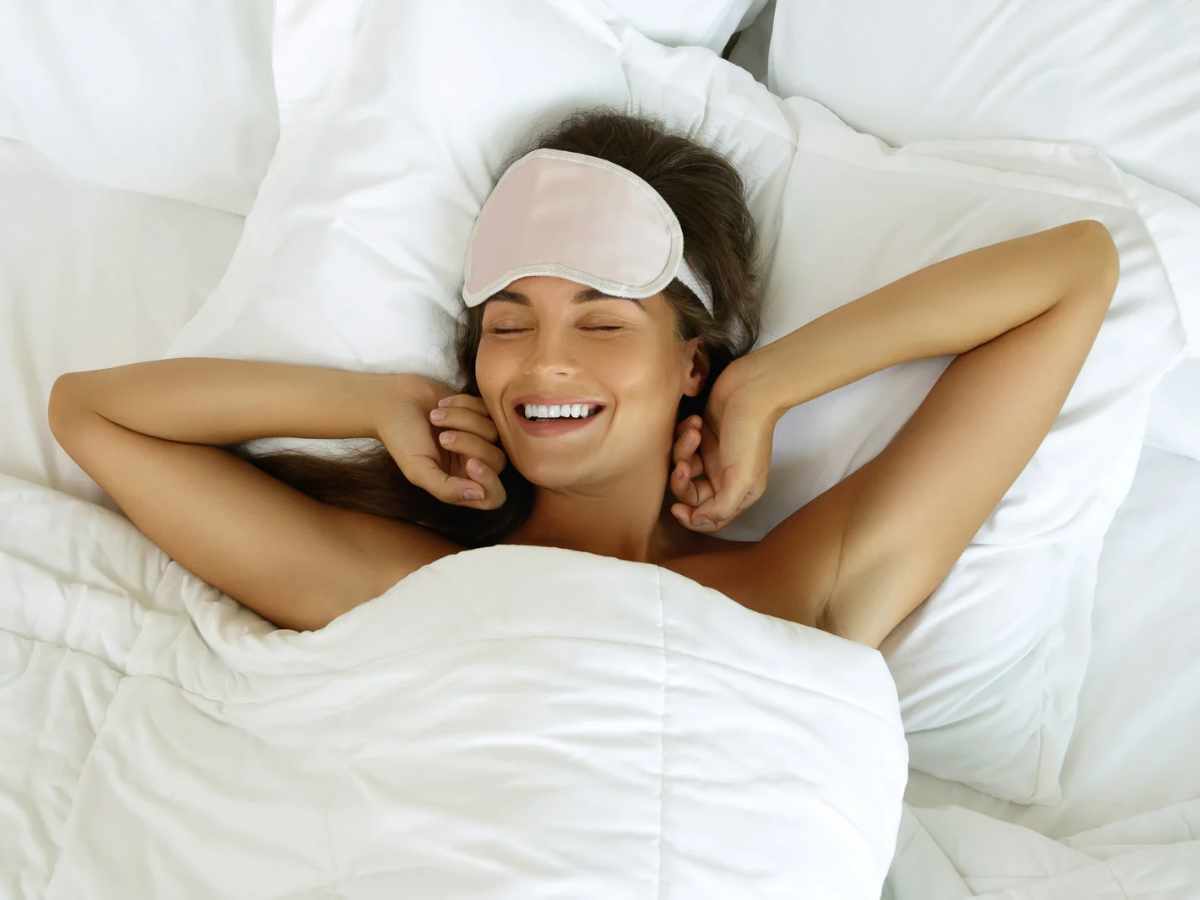
Get enough sleep
Based on what you've read so far, at least one thing’s clear. Sleep is crucial for eye health. Aim for 7 to 9 hours of quality sleep per night. Make sure your sleep is uninterrupted.
Maintain good sleep hygiene
If you have trouble sleeping, try improving your sleep hygiene. This helps improve the quality of your sleep. Here are a few things you could do:
- Make your bedroom a quiet, dark, and cool environment.
- Stick to a regular sleep schedule, even on weekends.
- Avoid screens for at least an hour before bedtime.
- Manage your stress levels.
Stay hydrated
Keep your body (and eyes) hydrated by drinking plenty of water. This can help prevent dry eye symptoms and keep your eyes feeling comfortable throughout the day. Shorter sleep durations are associated with dehydration [7]. This doesn't mean drinking more water gets you more sleep, but it shouldn't hurt.
Healthy diet
Consuming a balanced diet rich in fruits and vegetables helps your eye health. Dark leafy greens like spinach, kale, and collard greens are especially helpful. Foods rich in omega-3 fatty acids, such as salmon, tuna, and halibut, can also be beneficial. Foods high in calcium can help improve sleep quality. A healthy diet is also good for the rest of your body.
Regular eye exams
Regular eye exams are essential to catch any potential problems early. Inform your eye doctor if you've been experiencing sleep deprivation. Your optometrist can check for signs of diseases that might affect your vision, such as glaucoma and diabetic retinopathy.
Conclusion
Get more sleep! In a world where our eyes are constantly working, we need to treat them with a good night’s sleep. The health of our eyes is vital in a world of scanning screens, reading, and observing. Getting enough sleep may be a luxury, but it’s essential for keeping our eyes, and ourselves, healthy.
Remember, your eyes reflect your overall health. Take care of them by taking care of your sleep.
Frequently Asked Questions
What do eyes look like from lack of sleep?
Being sleep-deprived can lead to bloodshot eyes, dark circles, dryness, and puffiness. In the long run, it can lead to more serious conditions, like glaucoma and diabetic retinopathy.
Why does my eyesight get worse when I’m tired?
When you're tired, your eyes have to work harder to focus, which can lead to temporary blurred vision. Plus, sleep deprivation can lead to dry and itchy eyes, making it even more challenging to see clearly.
How do you fix sleep deprivation?
There are plenty of ways to address sleep deprivation. You can improve your sleep by improving sleep hygiene. This means maintaining a regular sleep schedule and creating a sleep-friendly environment. Try reducing screen time before bed and managing your stress. If the issue persists, it might be helpful to consult with a sleep specialist or healthcare provider.
Should I take sleeping pills?
Treat sleeping pills as a short-term solution. They’re not practical long-term solutions. Making lifestyle changes is the only assured way to fix your sleeping routine. Always consult with your healthcare provider. Doctors might recommend sleeping pills if sleep problems are directly causing problems in your life. Taking these medications can lead to side effects and may lead to dependency [8]. It's always best to try improving your sleep hygiene and routine before resorting to medication.
Are there any natural remedies for dry eyes?
There are several methods you can employ to remedy dry eyes. Protect your eyes using sunglasses when you’re outdoors. Consume foods that contain Omega-3. Lubricate with eye drops. Stay hydrated by drinking enough water. Take breaks from using screens and remember to blink enough. Quit smoking, as cigarette smoke irritates your eyes.
Can lack of sleep cause eye pressure?
While lack of sleep itself may not directly cause eye pressure, research has shown a link between sleep problems and glaucoma [2].
Let's learn together
Thank you for reading. Sign up for our weekly newsletter to receive to the latest blog posts, updates, and more delivered straight to your inbox. Don't miss out on valuable insights, useful tips, and fascinating discussions. Join the growing Brief Blink community today and elevate your understanding to new heights.
